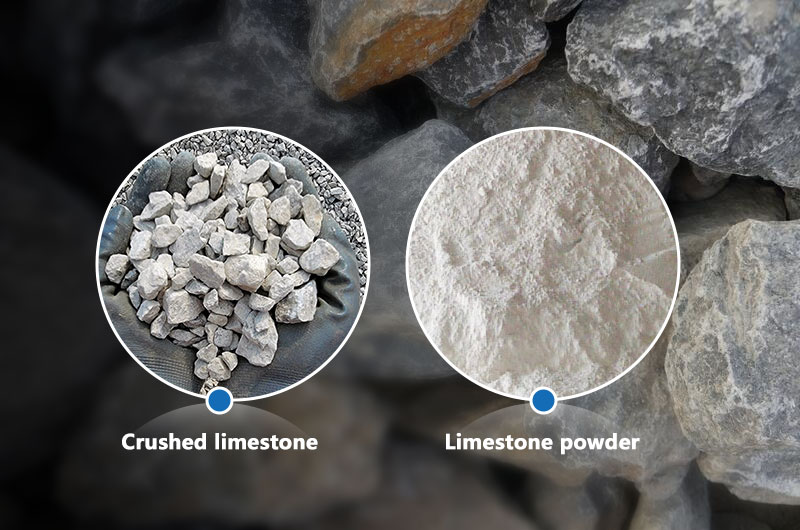PROCESSING TECHNOLOGY
Limestone or limestone resources are rich, raw ore grade can generally meet the requirements of various industrial sectors. Therefore, it is generally only necessary to carry out simple ore washing, and it is not necessary to use complex beneficiation process for purification. The processing of limestone is mainly crushing, grading and producing quick lime, hydrated lime, precipitated calcium carbonate, ultra-fine (nano) calcium carbonate, carbon dioxide, etc. Limestone is generally dry grinding process, for metallurgy, road limestone, the ore can be crushed and screened. For the production of fine powder products, the ore is crushed by jaw crusher, impact crusher or cone crusher, etc., and is ground directly with Raymond mill.
The first stage: coarse crushing
The bulk limestone material is uniformly fed by the vibrating feeder through the bin and transported to the jaw crusher for coarse crushing. After coarse crushing, the material is sifted by the vibrating screen and transported to the impact crusher by the belt conveyor.
The second stage: medium fine crushing
After the coarse crushed material transported to the counterattack is broken by the counterattack, the circular vibrating screen is used to screen the broken material after the counterattack, and the larger granular material is returned to the counterattack and broken again. If finer products or shaping are required, the broken material is sent to the sand making machine for further crushing and shaping.
The third stage: grinding
The small pieces of crushed limestone material are sent to the silo by the elevator, and then evenly and quantitatively sent to the grinding room of the mill by the vibration feeder.

The main composition of limestone is calcium carbonate (CaCO3), Mohs hardness 3. After limestone is mined from limestone, it is crushed to form limestone particles, that is, stone, sand, or further ground to form limestone powder, which is widely used in building materials, highways, metallurgy, chemical and other industries. Lime is divided into quick lime and hydrated lime. Limestone after forging and burning into calcium oxide CaO (common name quicklime), generally in bulk, used in water quality treatment, asphalt improvement, desulfurization, building materials, medicine and other industries. Lime absorbs moisture or adds water to become hydrated lime, the main component is calcium hydroxide Ca(OH)2, used in environmental protection, medicine, food and other industries.
Article Title: Limestone
Author:Xingaonai
Reprint URL: https://www.cadana.cn/industral-news/50.html
specialized in R&D and manufacturing of crushing, milling, screening, feeding, conveying, automation and other equipment.
